SA Government moves to abolish automatic anonymity for alleged sex offenders — but victim protections will remain in place
Decades of special treatment for alleged rapists and paedophiles granted automatic anonymity when they face court will end under new laws headed for State Parliament — and victims’ rights groups are this morning applauding the move.
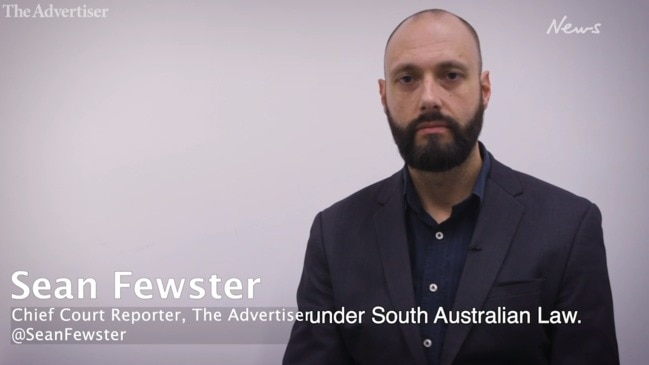
SA News
Don't miss out on the headlines from SA News. Followed categories will be added to My News.
- Analysis: Abolishing secrecy ends inequity
- 2011: Judge says abolish gag orders – Labor says no
- 2013: Landmark first – and only – victory for your right to know
- 2018: Campaign calls for end to unjust, isolating, out-of-date law
Archaic and draconian laws that grant automatic anonymity to alleged sex offenders – regardless of who their victim is – will be abolished under a Bill slated to go before Parliament.
Following The Advertiser’s “Your Right to Know” campaign, and as recommended by a former Chief Justice, the State Government will move to rewrite the Evidence Act (1929).
The draft Bill will erase clauses giving alleged paedophiles and rapists special protections that are not extended to other defendants, allowing the public to know their identities.
Attorney-General Vickie Chapman said several recent court cases had highlighted “the necessity” for contemporary laws that are in line with community expectations.
She said the public’s interest in open, transparent justice outweighed any “stigma” carried by sex crime allegations – and vowed the anonymity of victims would remain guaranteed.
“No other class of defendant is afforded the same protection as alleged sex offenders,” she said.
“In the absence of compelling reason, I believe it’s fair that all persons charged with committing crimes are treated equally.”
Opposition legal affairs spokesman Kyam Maher said the draft Bill would have his party’s support in Parliament, once its exact wording had been scrutinised.
“Labor supports the principle of removing automatic suppression orders for those accused of child sex offences,” he said.
“We are disappointed, however, that just last week Vickie Chapman and Steven Marshall voted against Labor legislation that would see dangerous paedophiles behind bars instead of having the possibility of serving their sentences in the community.
“It is hard to make sense of Steven Marshall’s hypocrisy.”
Under section 69A of the Act, any defendant seeking a suppression order must convince a court one is needed “to prevent prejudice to the proper administration of justice”.
The section also empowers courts to impose an order that prevents undue hardship to an alleged victim – including a child – or a crime, or to a witness.
However, section 71A of the Act automatically bans reporting of not only an alleged sex offender’s identity, but also all details of their case.
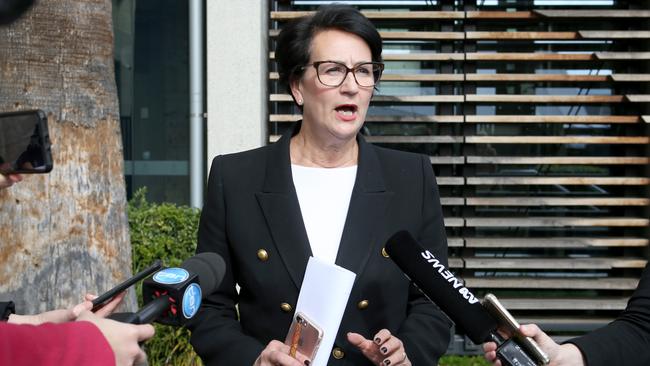
That ban remains in place until they enter a plea to the charge and are ordered to stand trial in the Supreme or District Court.
Should their trial take place in the Magistrates Court, the ban continues indefinitely unless they are found guilty.
The provision therefore shields each and every alleged sex offender from all public scrutiny for months – and sometimes years – while pre-trial hearings play out.
Any breach of the section incurs a maximum $120,000 fine and has the potential to also spark contempt of court proceedings.
Section 71A operates separately from the automatic ban on identifying the victim of a sex crime which, in cases involving family members, grants anonymity to alleged offenders.
The autonomy of section 71A has been controversial for almost two decades and, in 2011, was reviewed by former NT Chief Justice Brian Martin.
He recommended it be abolished, but the then-Labor Government opted for a half-measure allowing the media to apply to overturn bans in cases of “genuine public interest”.
In the eight years since, just one such application has been granted by the courts – in the child exploitation material case of former State MP Bernard Finnigan.
Last year, victim advocacy groups joined The Advertiser’s campaign to abolish the section, dubbing it unjust, out of touch and responsible for further isolating victims.
They said SA was lagging behind the global push to empower victims and scrutinise predators.
Ms Chapman stressed there would be no changes whatsoever to automatic and ongoing identity protections for victims.
She said the goal of the Bill was to improve community confidence in the legal system, provide greater public information and prompt witnesses and victims to come forward.
“Historically, the imposition of a suppression order has been based on the presumption of innocence and desire to prevent an (acquitted) person from social stigma,” she said.
“While other serious offences may also attract some stigma, sexual offences are viewed as particularly abhorrent and may taint the reputation of a person even if they are acquitted.
“In these circumstances, I believe the adverse effects on some accused are outweighed by the public in having an open system of justice.”
Ms Chapman said the government was in consultation with courts, justice agencies, lawyers and advocacy groups, but wanted to act on Justice Martin’s recommendations.
“The former Labor Government failed to implement these changes when they were handed the report,” she said.
Who the laws hid
Because Section 71A of the Evidence Act (1929) operates automatically, literally every alleged SA sex criminal is granted extended periods of anonymity. Some of the worst offenders include:
MARK CHRISTOPHER HARVEY
After-school carer, child sex predator
Kept secret for: More than seven years
Director of an OSHC facility, Harvey persistently exploited four girls under his care – crimes that would eventually spark the Debelle Inquiry into the Education Department. The automatic ban on his identity lasted more than seven years because his charges were handled in multiple, separate trials, and was finally lifted in May 2014.
MARK ERRIN RUST
Taxi driver, rapist and serial killer
Kept secret for: Five years
Rust’s criminal career began with public exposure and indecency offences, escalating to two rapes and the murders of Maya Jakic and Megumi Suzuki. Because of the sex crimes, Rust’s trial for Ms Jackic’s murder went ahead in total secrecy and his identity was not revealed until he faced justice for Ms Suzuki’s murder.
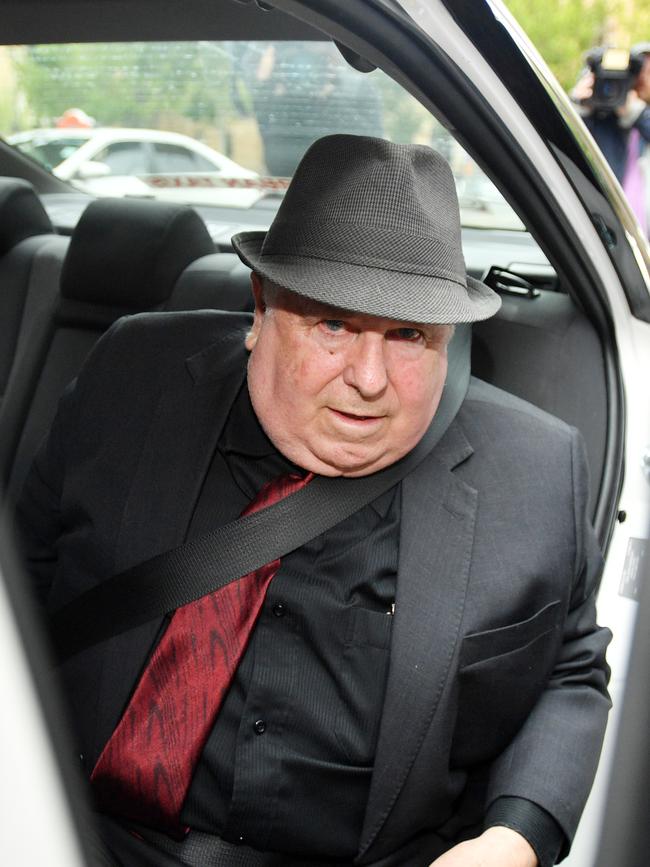
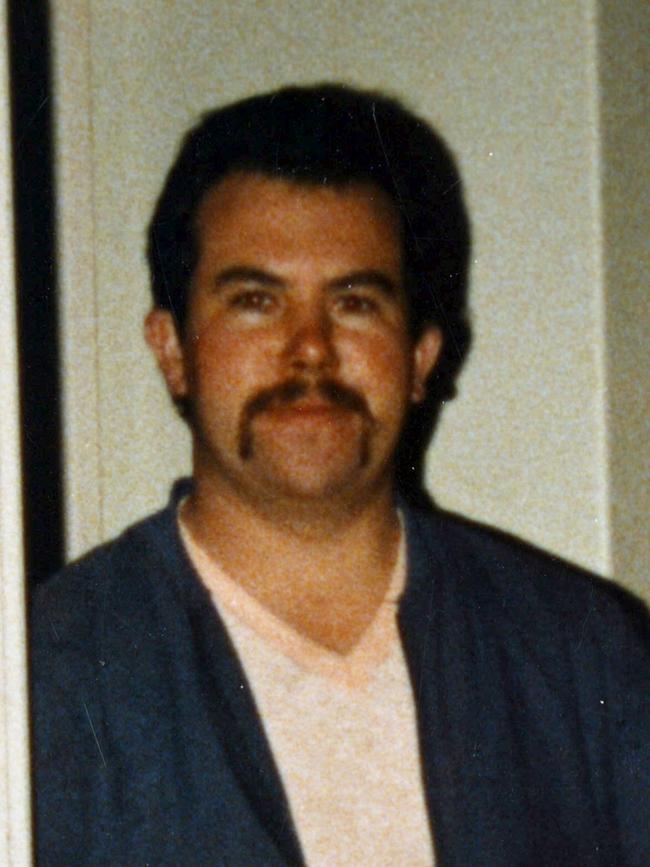
VIVIAN DEBOO
Caterer, church leader, serial paedophile
Kept secret for: Five years
Deboo’s name was first revealed to the public in the late 1990s, when he was convicted of child sex crimes dating back decades. His identity became secret once again in 2013, however, when his abuse of two brothers – known as “A” and “B” – was revealed. That order remained in place until he pleaded guilty in 2018, and was eventually jailed for six years.
GARRY FRANCIS NEWMAN
Paedophile, online identity fraudster
Kept secret for: 1125 days
Newman used his complex web of 200 fake online identities to unsuccessfully groom two teenage girls, overseas, for sex before turning his attention to SA girl Carly Ryan. He deceived her and, in February 2007, murdered her at Port Elliot. His automatic identity ban was extended by the courts, lasting until March 2010 when he was jailed for life.
BERNARD FINNIGAN
Politician, user of child pornography
Kept a secret for: 523 days
A rising Labor Party star and MLC, Finnigan was arrested in April 2011 for downloading child exploitation material. He remained automatically suppressed until September 24, 2012, when he was ordered to stand trial – and was resuppressed four months later when that order was overturned. His case prompted the then-Labor Government’s half-measure change to state law, allowing reporting of his case. He received a suspended jail in December 2015.
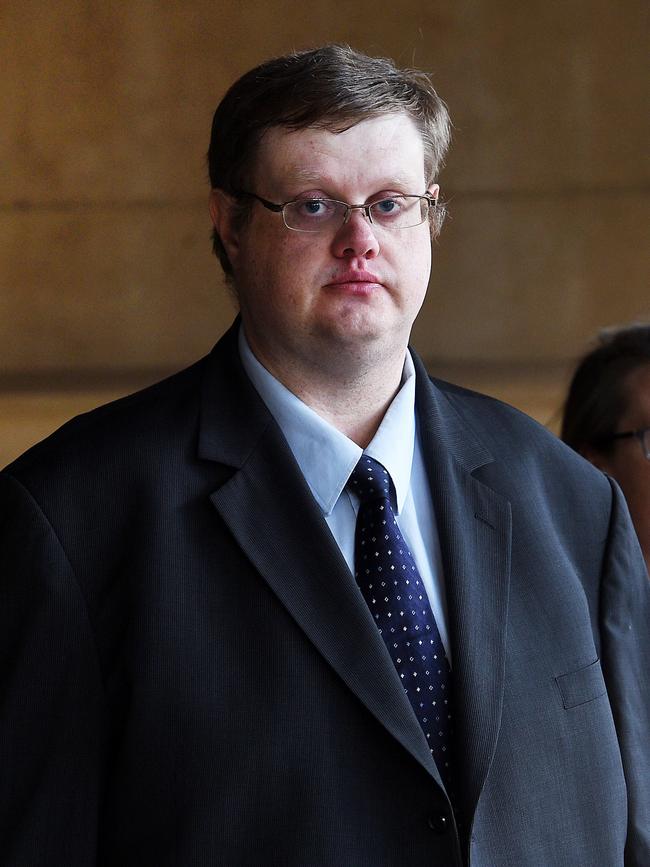
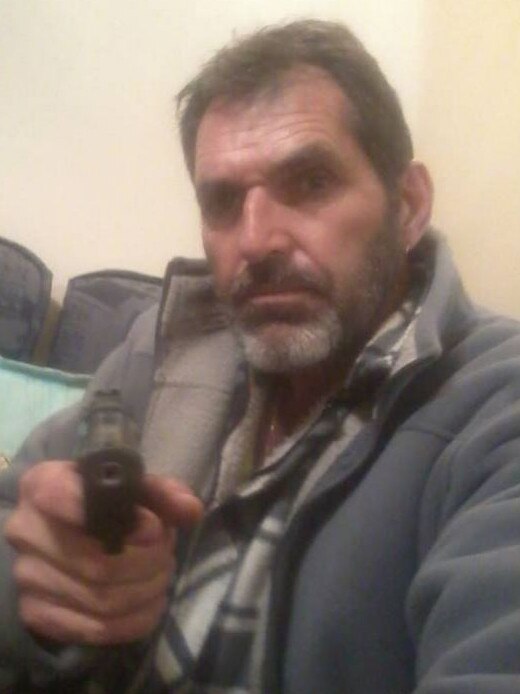
ROMAN HEINZE
Kidnapper, rapist, collector of perverse sexual material
Kept a secret for: 457 days
Heinze kidnapped two backpackers – from Brazil and Germany – and subjected them to a horrifying ordeal on an isolated stretch of beach at Salt Creek. Because he had sexually assaulted one of the women, his identity was automatically suppressed. His lawyers successfully applied to have that secrecy gag remain in place until his trial ended.
GENE BRISTOW
Cattle farmer, kidnapper and rapist
Kept a secret for: 298 days
Bristow imprisoned and sexually assaulted an overseas backpacker who accepted his offer of employment. She escaped and he was arrested, triggering both the automatic suppression order and several others banning the publication of any photos of his Meningie property. His identity was revealed when he pleaded not guilty, and he was jailed for 18 years.



